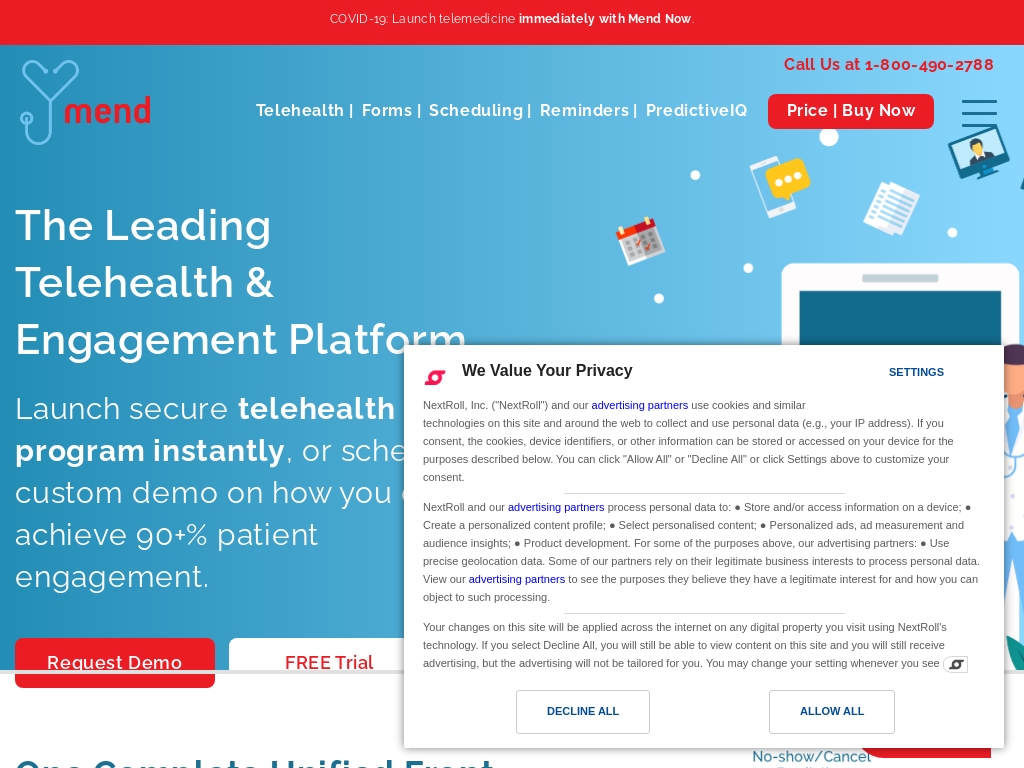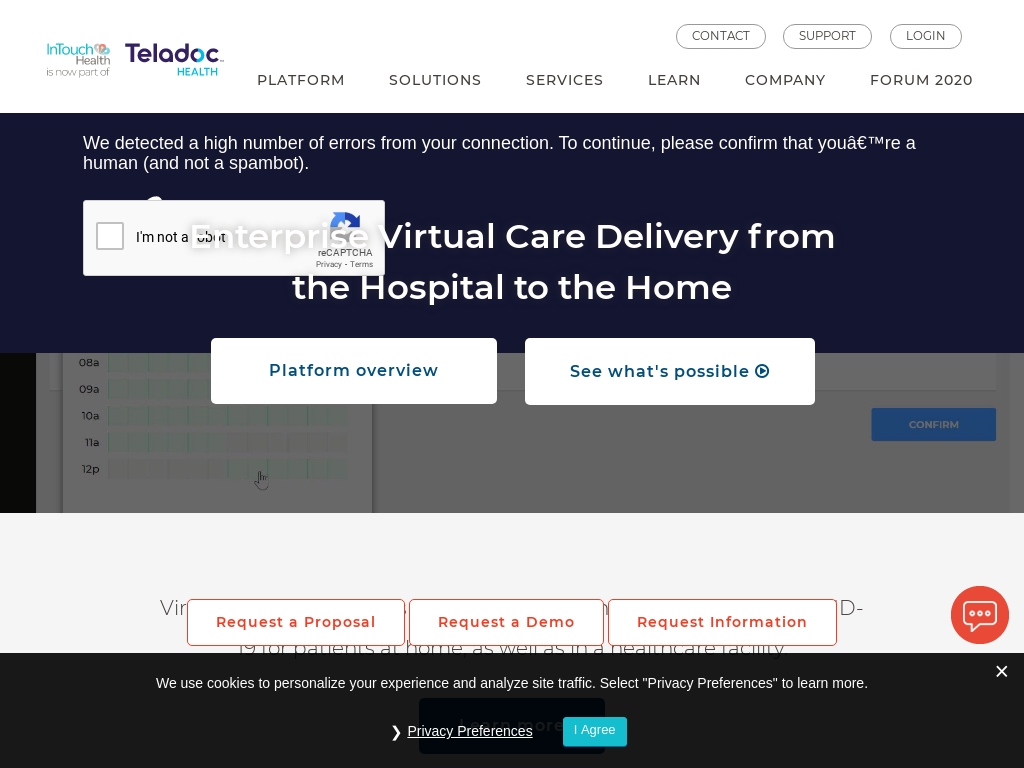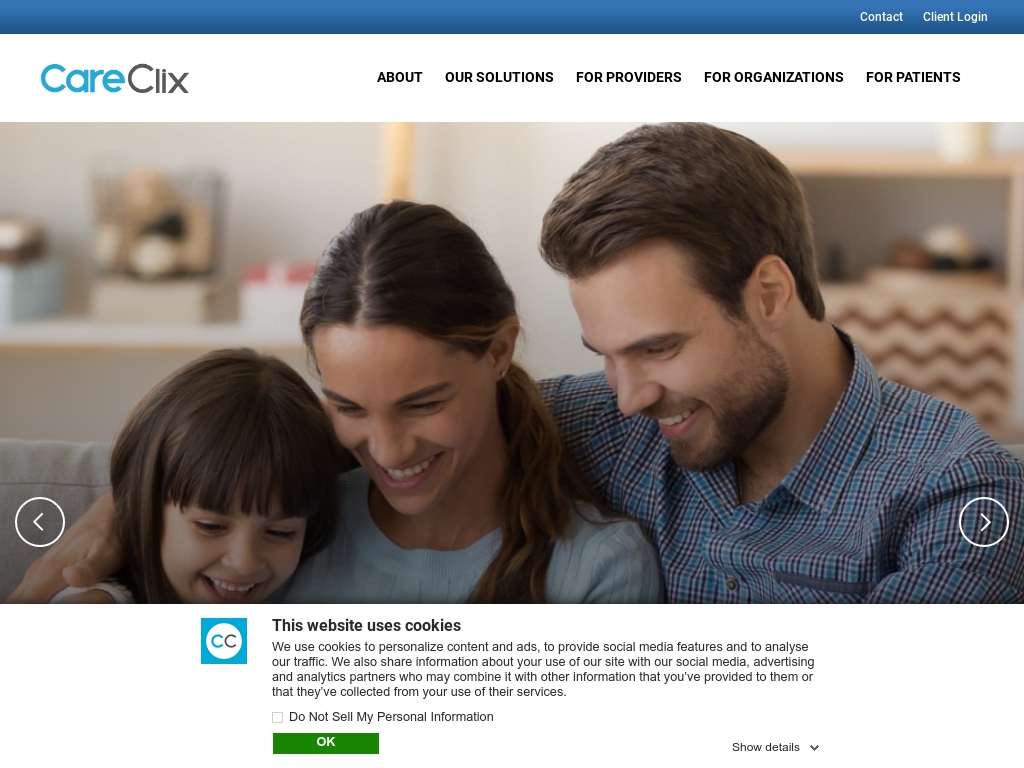Start A Telehealth Business - Business Ideas
Please note that the data provided in this article are estimates and may vary depending on various factors, and should not be considered as perfect or definitive.
Navigating the healthcare landscape is a challenge, making telehealth a highly appealing proposition. A telehealth business uses digital information and communication technologies to cover long distances and provide health care. It opens a spectrum of opportunities - connecting patients to healthcare services via video chats, forwarding health data to doctors for examination, and even educating healthcare professionals.
Starting a telehealth business could place you at the forefront of an emerging industry. The global pandemic has proven the need for quality remote healthcare, and this trend is unlikely to reverse. By giving patients greater access to healthcare professionals from the comfort of their homes, you're not just building a business, but building a service that can make a significant difference in people's lives.
Before you get started though, understand that this will involve understanding and navigating healthcare regulations, and possibly teaming up with medical professionals to provide services. However, considering the growth potential of telehealth, the venture may very well be worth it.
Starting a telehealth business requires a great deal of effort, dedication, and most importantly passion.
If you're interested in how to sell telehealth services, or selling telehealth services online, you can use this page as a guide for everything you'll need to know.
Want to learn more? You can check out our full guide on how to start a telehealth business ➜
Key Stats
Startup Costs
| Min Startup Costs | Max Startup Costs | |
|---|---|---|
|
Office Space Expenses |
$0 |
$7,000 |
|
Employee & Freelancer Expenses |
$151 |
$352 |
|
Website Costs |
$223 |
$7,215 |
|
Business Formation Fees |
$600 |
$4,700 |
|
Equipment & Supply Expenses |
$63 |
$200 |
|
Software Expenses |
$162 |
$3,094 |
|
Advertising & Marketing Costs |
$0 |
$2,550 |
|
Training & Education Expenses |
$0 |
$1,000 |
|
Total Startup Costs |
$1,199 |
$26,111 |
Successful Businesses
| Business | URL | Rank | |
|---|---|---|---|
|
|
Doxy |
doxy.me |
8,473 |
|
|
Amwell |
amwell.com |
65,932 |
|
|
Teladoc Health |
teladochealth.com |
91,479 |
|
|
myNEXUS |
mynexuscare.com |
211,945 |
|
|
MendFamily.com |
mendfamily.com |
219,982 |
|
|
VSee |
vsee.com |
220,032 |
|
|
Chiron Health |
chironhealth.com |
277,336 |
|
|
InTouch Health |
intouchhealth.com |
375,433 |
|
|
Healthcare-Grade Televisions & Interactive Patient Education |
telehealth.com |
497,346 |
|
|
CareClix |
careclix.com |
510,435 |
|
|
ATA |
americantelemed.org |
644,954 |
Pros & Cons
| Pros | Description |
|---|---|
|
Flexibility |
You can put as much time into the business as you'd like. If you like the work and have some initial experience, you can start small and manage all aspects of the business on your own. |
|
Ability to start your business from home |
It's not necessary to have a physical storefront or office space to get your business started. You can do everything from the comfort of your own home, at least in the beginning! |
|
Rewarding work |
Starting a telehealth business can be really rewarding work. After all, you are solving an immediate issue for your customer and you're working on something you truly care about. |
|
Scalable |
With businesses and processes changing daily, there will always be demand for new features, products and services for your business. Additionally, there are several different business models and pricing tiers you can implement that will allow you to reach all types of customers. |
|
Traffic to your website |
A telehealth business gives people a reason to visit your website and to keep coming back to you! |
|
Meaningful business connections |
You never know who you will meet as a telehealth business. This could be the start of an incredible business opportunity! |
| Cons | Description |
|---|---|
|
Motivation of employees |
If you plan to have a sales/content team on board, finding creative ways to motivate them can be a challenge. It's important that you're able to offer great incentives and a good work environment for your employees. |
|
Longer Sales Process |
A telehealth business can be a big time and money investment for your customer, so it's important you plan and predict a longer conversion funnel and stay in communication with potential customers. |
|
Low margins |
The gross margins for your telehealth business are typically around 40%, which can make it more challenging to incur new expenses and maintain profitability. |
|
High employee turnover |
In the telehealth business, employee turnover is often high, which can be quite costly and time consuming for your business. It's important to try and avoid this as much as possible by offering competitive pay, benefits, and a positive work environment. |
|
Taxes |
As a telehealth business, you typically pay self-employment taxes which can be quite high. It's important to understand what you will be paying in taxes each year so you can determine if the work you're taking on is worth it. |
|
High overhead expenses |
With starting a telehealth business, there are overhead expenses that come with selling a physical product. You will want to make sure you strategically budget for these overhead costs. We discuss this more in the startup costs section below. |
Marketing Ideas
-
1
Affiliate Program
Affiliate marketing is a great way to bring in a new revenue stream, especially when you don't sell products or services.
Simply put, an affiliate program is an agreement where a business pays another business or influencer ("the affiliate") a commission for sending traffic and/or sales their way.
The affiliate typically gets a unique link where clicks and conversions can be tracked.
-
2
Direct Sales
Direct sales strategy implies a direct contact between a seller and a consumer without the involvement of any third party. Direct selling is popular in sectors where sellers communicate with their clientele personally. The sales technique occurs at non-store locations which include at home, work, or online.
For direct selling to succeed, hire a few (or many) salespeople to support the sales conversion process. It's critical that you assign them specific roles and responsibilities to nurture the client and provide excellent support.
-
3
Word of mouth
Word of mouth is when a consumers reflects their interest in a company’s product or service in their daily dialogues.
Therefore, word of mouth advertising is essentially a free advertising triggered by the customers experience.
According to Nielsen, 92% of people trust recommendations from friends and family.
Therefore, in today’s hyper-connected world, a single recommendation through a word of mouth can have a huge impact to your business.

- 4,818 founder case studies
- Access to our founder directory
- Live events, courses and recordings
- 8,628 business ideas
- $1M in software savings

- 4,818 founder case studies
- Access to our founder directory
- Live events, courses and recordings
- 8,628 business ideas
- $1M in software savings

- 4,818 founder case studies
- Access to our founder directory
- Live events, courses and recordings
- 8,628 business ideas
- $1M in software savings

- 4,818 founder case studies
- Access to our founder directory
- Live events, courses and recordings
- 8,628 business ideas
- $1M in software savings

- 4,818 founder case studies
- Access to our founder directory
- Live events, courses and recordings
- 8,628 business ideas
- $1M in software savings

- 4,818 founder case studies
- Access to our founder directory
- Live events, courses and recordings
- 8,628 business ideas
- $1M in software savings

- 4,818 founder case studies
- Access to our founder directory
- Live events, courses and recordings
- 8,628 business ideas
- $1M in software savings

- 4,818 founder case studies
- Access to our founder directory
- Live events, courses and recordings
- 8,628 business ideas
- $1M in software savings










